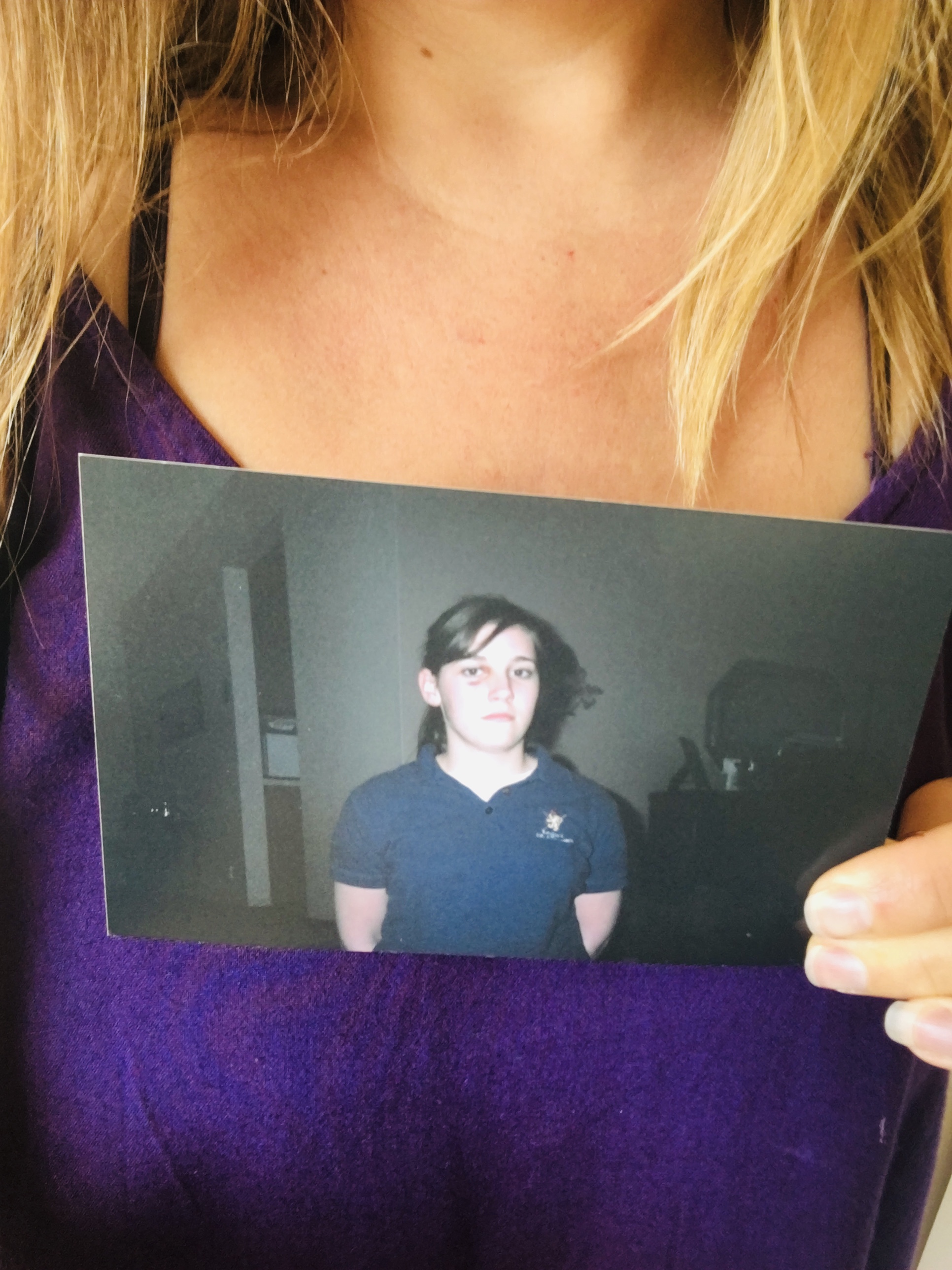
She said it as if she wasn’t dropping a bomb onto my entire life thus far.
Have you been suffering from extreme wanderlust, poor relationships, social anxiety, work anxiety, family anxiety, or grocery store anxiety? Or maybe just an unhealthy attachment style in your romantic relationships? What about binge and/or emotional eating? Shopping addiction? Social media addiction? Love addiction? Really, any kind of addiction? Have no fear! You may just be suffering from PTSD!
The way she said it was actually pretty flippant. She just kind of casually dropped it on the counter while she was moving between rooms, seemingly with very little thought involved: post-traumatic stress disorder PTSD. Like I must have heard this time and time again from medical professionals.
I hadn’t. I’d never heard it said in relation to me before.
All of the self-help—all of the seminars, personality quizzes, and speakers—they were all just dancing around the one central issue that would have been impossible for them to diagnose, because even I hadn’t considered it. Even I didn’t believe it warranted remembering. So I didn’t (remember it). I knew that it had happened intellectually, but I didn’t remember it happening (like the feelings or that it was me that it happened to, and not just an abstract story).
And then, once she said it again—and, I cannot stress this enough, flippantly—I dove into the internet for solace. Looking to understand what had been going on for all of these years: all of the moving, and dissatisfying relationships, and overeating, and running, and simultaneous ability to cling to people and drop people at the drop of a hat, and seemingly always simultaneously looking for a reason to feel inferior.
I was certain that a full-fledged adult (which I couldn’t possibly be) would not have needed 17 years to uncover this. There must be something wrong with me that isn’t explained by post-traumatic stress disorder. There must be something even more pathetic and abnormal about me specifically. (Always the goddamned need to be special, even in this, the desire to be too advanced for help, or too far gone to be saved. Insert face palm emoji here.)
But I didn’t find it. I found no timelines on what was a reasonable and respectable expanse of time to recover from trauma. The doctor said “childhood trauma.” I felt like this was giving me too much license to milk it. I wasn’t nine, I was 15. I wasn’t sexually abused, I was beat up. Get the f*ck over it already, I thought someone should be saying.
So I looked (hard) for an article to do just that. But I didn’t find one. The audio book she recommended was based on the premise that I deserve compassion, not because my pain is legitimate (something I was highly skeptical of), but because I was in pain.
Oh.
This was not heading the route I expected it to go, nor the route I felt I deserved. But I went with it anyway and I did the exercises she told me to do.
I called them “My Feeling Work,” kind of to mock myself, kind of to not. I did a lot of sitting and crying for two weeks (I was super fun to be around, let me tell you). One day, early on in the process, I (naively) told myself, “Okay. You have today. Get it all out your system, then tomorrow you’ll be better.” So I tried. I thought about all the sad things I could think of and I forced all of the tears I could manage out of my eyes.
But that’s not really how it works. And the next day, I had to do it all over again.
Some days I’d touch on something especially poignant and cry especially hard, touching something visceral inside myself and feeling almost positive that that had done it, that I’d cried myself better. And to prove it, I would go the entire next day without needing to cry. But then, the day after that, my throat would hurt, my jaw would ache, my chest would be tight, and I would know there was still more to do.
One day, a particular such nerve was struck as I was practicing being in my body, remembering everything I could about that period of time. This time, I was remembering the first time I went back into the school, which had been where it had happened.
I remember myself (and whether this is a real memory or not, I’m not sure) standing alone looking up at it and deciding in that moment to go it alone. I know now, with near certainty, that it was then I wasn’t interested in allowing others along for the journey with me. I would need to do it (life, I’m assuming) alone.
When I realized this, I cried and cried. I felt so small and so young and so unprotected. I spent two or three days on this memory alone.
When I got to the point that I no longer cried thinking about it, I then imagined standing in front of that building at 15 and making a different choice. Instead of shutting such a huge part of myself down, I tried to rewrite my memories as if, at that time, I’d felt safe enough to break as I’d been broken, and let those around me stand by me, instead of refusing to admit that any harm had been done—even though the evidence was written across my broken nose and black eyes.
At that time, I believed that acknowledging I’d been hurt was letting my attacker hurt me again, and I was unable to give that power to anyone. That belief, and the choice that followed, resulted in only living half of a life for all the years that followed.
When I remembered what I had chosen to forget, I imagined it looking like the moment Buffy reentered her body at the beginning of season six of “Buffy the Vampire Slayer.” She’d been dead for the summer after jumping into a vortex of Hell to save humanity (as one does—but please, do not confuse this with the first time she was brought back to life in season one, which was death by drowning/vampire bite to the neck), and her friends decide to use magic to return her soul to her body.
But really, I’m sure nothing external happened. And instead, just the internal discovery of a pocket I’d long ago decided to not know was there anymore.
Just like other times in my life, whenever I’ve had big realizations, a feeling of peace comes over me momentarily as if I’ve solved something (I liken it to an emotional orgasm, though I’m sure counselors would call it something boring like a breakthrough). It’s always short-lived, because I don’t mean that it feels like I’ve solved a specific problem in my life, I mean it feels like I’ve solved the problem of life.
Of course this is impossible, because it presupposes that there’s an end point, that life can be solved, that there’s a point of completion to reach. And there isn’t. If it is a puzzle, this thing called living, then it’s like the universe itself or a set of beaver’s teeth: it just never stops expanding. There will always be more to learn.
This was a really big piece of my puzzle. It answered a lot of questions that I have been grappling with for nearly two decades, but of course, it’s not everything. Nothing will ever be everything.
I believe that the point of my life is to get better at being kind and honest. I was focused on projecting those two ways of being outward, being those things to others, but it hadn’t really occurred to me that offering those two things to myself would be what I was most in need of.
Directing my kindness and honesty internally finally allowed my nervous system to believe it was safe enough to reveal what I had been hiding from myself for 17 years. And that allowed me to do “My Feeling Work.”
~






Read 0 comments and reply